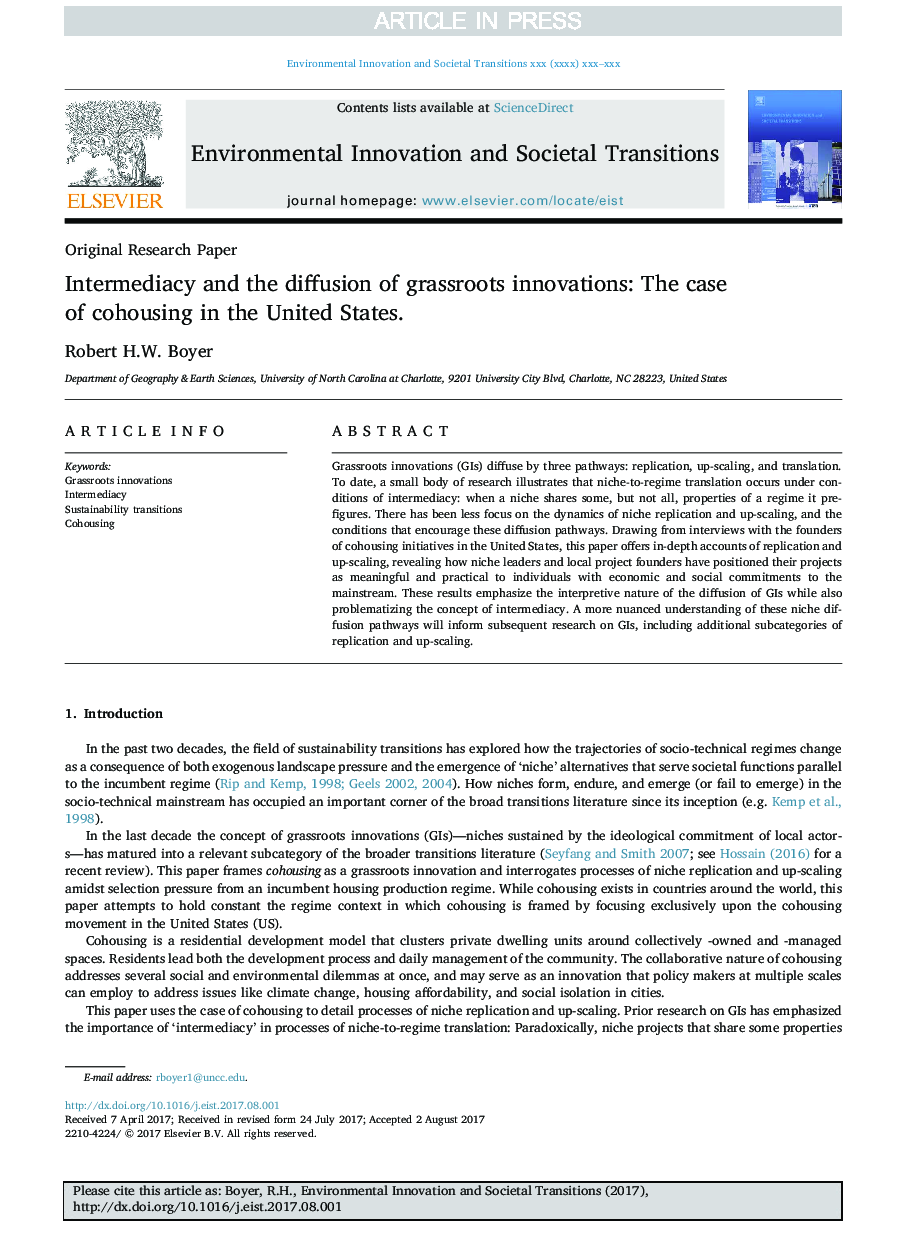| Article ID | Journal | Published Year | Pages | File Type |
|---|---|---|---|---|
| 6559148 | Environmental Innovation and Societal Transitions | 2018 | 12 Pages |
Abstract
Grassroots innovations (GIs) diffuse by three pathways: replication, up-scaling, and translation. To date, a small body of research illustrates that niche-to-regime translation occurs under conditions of intermediacy: when a niche shares some, but not all, properties of a regime it prefigures. There has been less focus on the dynamics of niche replication and up-scaling, and the conditions that encourage these diffusion pathways. Drawing from interviews with the founders of cohousing initiatives in the United States, this paper offers in-depth accounts of replication and up-scaling, revealing how niche leaders and local project founders have positioned their projects as meaningful and practical to individuals with economic and social commitments to the mainstream. These results emphasize the interpretive nature of the diffusion of GIs while also problematizing the concept of intermediacy. A more nuanced understanding of these niche diffusion pathways will inform subsequent research on GIs, including additional subcategories of replication and up-scaling.
Related Topics
Life Sciences
Environmental Science
Management, Monitoring, Policy and Law
Authors
Robert H.W. Boyer,
